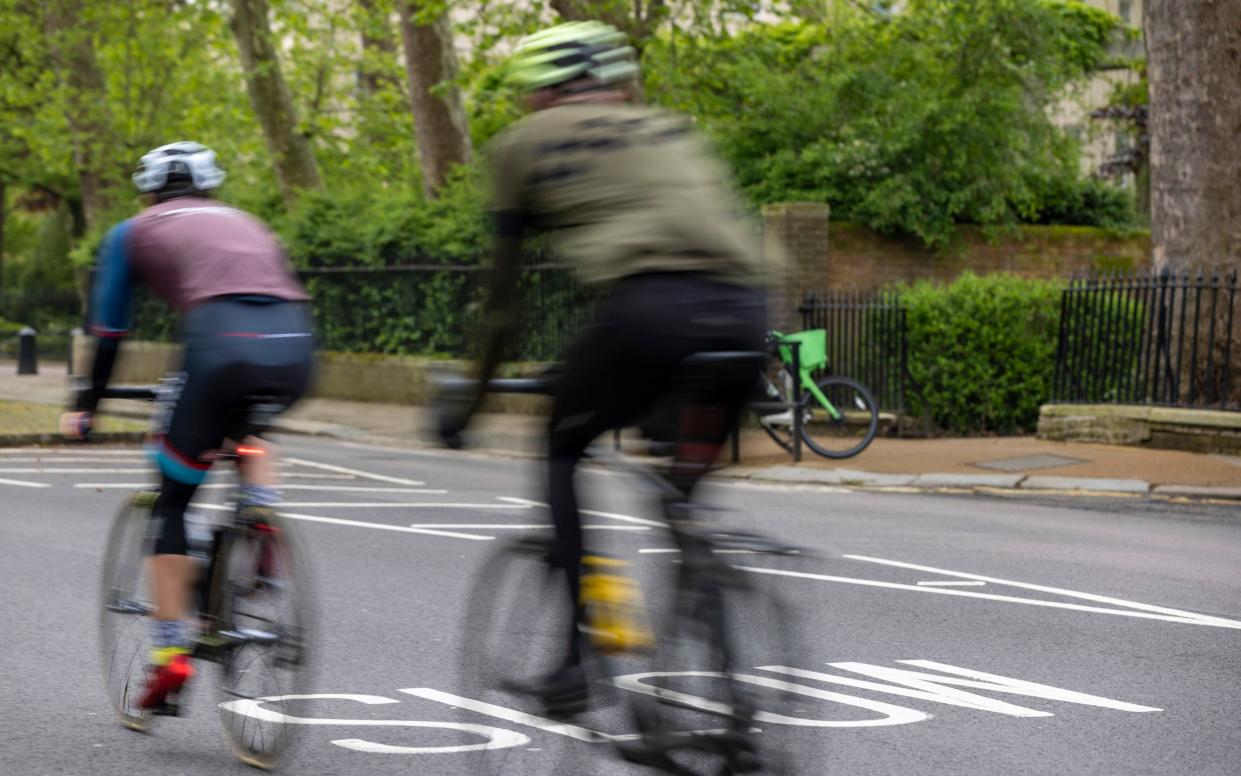Do we need tougher laws on reckless cyclists?

In the nineteenth century, horse-drawn vehicles thundered down the streets of our cities, too often leaving a trail of carnage behind them. In 1860 Parliament finally took a stand, passing The Offences Against The Person Act 1861, which included provision that “Whosoever, having the Charge of any Carriage or Vehicle, shall, by wanton or furious Driving or Racing…do or cause to be done any bodily Harm to any Person whatsoever, shall be guilty of a Misdemeanor…”
This section (s35) has been through a number of iterations in the 160+ years since, but in essence it is still with us. And just as well. Because there’s not a lot else when it comes to man-and-beast belting along a road, if the beast in question is made of metal and doesn’t have an engine.
Indeed, cyclists, if you’ll excuse the pun, have an easy ride as far as the law is concerned. Many will have read of the cyclists who killed Jim Blackwood aged 91, John Douglas aged 75, Peter McCombie aged 73, and Kim Briggs who was just 44. She had a husband and children and a world of life ahead of her. And then she didn’t. Because a cyclist was riding utterly irresponsibly on a public road which she was trying to cross. Now Hilda Griffiths, aged 81, is dead because she crossed a road in front of not just a single cyclist but a whole group cycling together round the outer circle of Regents Park. Yet the speeding cyclist who struck her, we hear this week will not be prosecuted.
Such cases have troubled me ever since I tried the case of Charlie Alliston, the young man who killed Kim Briggs. In the intervening years I have been waiting to see if the law would be changed. Yet whilst more people have died, been injured, or mutilated, I am still waiting.
There are, of course, some laws that bite at present – otherwise Charlie Alliston couldn’t have been prosecuted. Firstly there is manslaughter – or, more specifically, “unlawful act manslaughter”. It requires an underlying unlawful act. Although the person who collided with Kim Briggs was not going faster than the speed limit on the road in question, he was riding a racing bike without a front wheel brake on a public highway, which is unlawful. Despite this, he was ultimately acquitted of manslaughter. The person who collided with Hilda Griffiths was riding at nearly 29 mph on a road with a speed limit of 20. But the speed limit does not apply to bicycles and so his behaviour was not the crime of breaking the speed limit, and since no one seems to have identified any other underlying unlawful act committed by him, he cannot be prosecuted for this form of manslaughter.
The second offence that can be prosecuted is the eternal s35 of the 1861 Act. For this, the prosecution must prove that (i) whilst in charge of a bicycle there was wilful misconduct by the cyclist (ii) this caused bodily harm to another road-user. Wilful means only that it was the cyclist’s choice to ride in this way. It is for the jury to decide whether, in all the circumstances, the behaviour amounted to misconduct. The offence is clearly predicated upon a broader range of conduct than manslaughter, but it carries a maximum of only 2 years imprisonment. Charlie Alliston was charged with this too, and was convicted, and served a prison sentence.
So here’s the question: should we have a law drafted to address the specific problem posed by some cyclists, with specific conduct made unlawful and specific sanctions when that conduct is proved – or shouldn’t we? I have heard many arguments against it: that “cyclists have rights too” – and indeed they do. I have heard it said that “cows kill more people than cyclists” and for all I know they might do. I have even heard “but it’s so difficult to enforce such a law because bicycles don’t have registration plates and cyclists don’t have driving licences”.
But to determine whether you need a new law, it might be better – rather than saying these are the reasons you shouldn’t do it – to go back to first principles and see whether you should.
We have criminal laws to protect us. And if the criminal laws are there to protect us all, doesn’t that include every Jim and John and Peter and Kim and Hilda? If the right to pleasure needs to be balanced against the right to life, doesn’t it require at least the exercise to be undertaken by the law-makers? If cows need dealing with, let them be dealt with – but is that a reason not to deal with bicycles? If the law is difficult to enforce, shouldn’t the law-makers decide whether the issue is important enough to find ways of enforcing it?
It is for Parliament to decide to make a law, or not to. But long grass only grows longer, until eventually it grows so long you can’t see what is lying there.
Wendy Joseph KC is a former judge and author of ‘Rough Justice: Do we have the law we deserve?’
